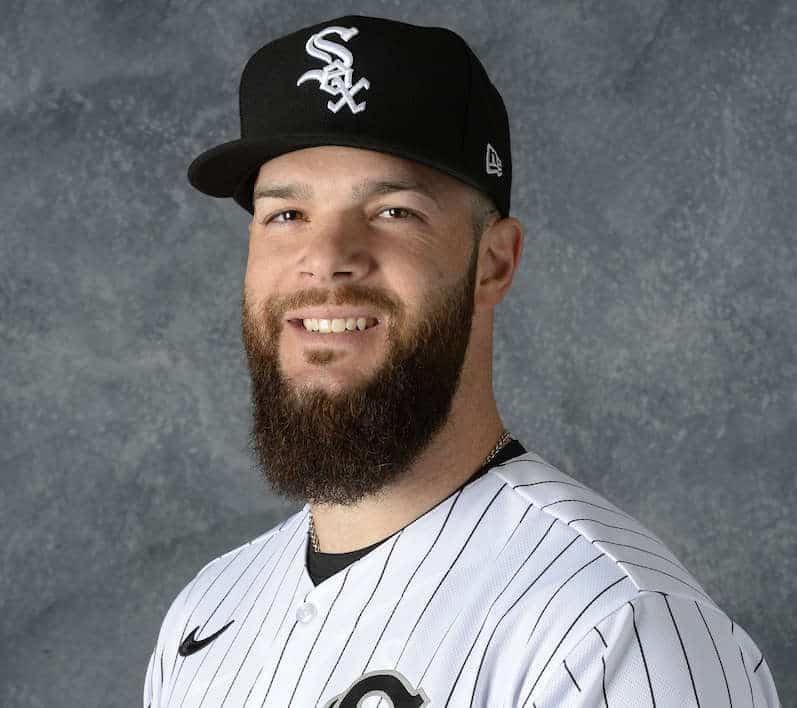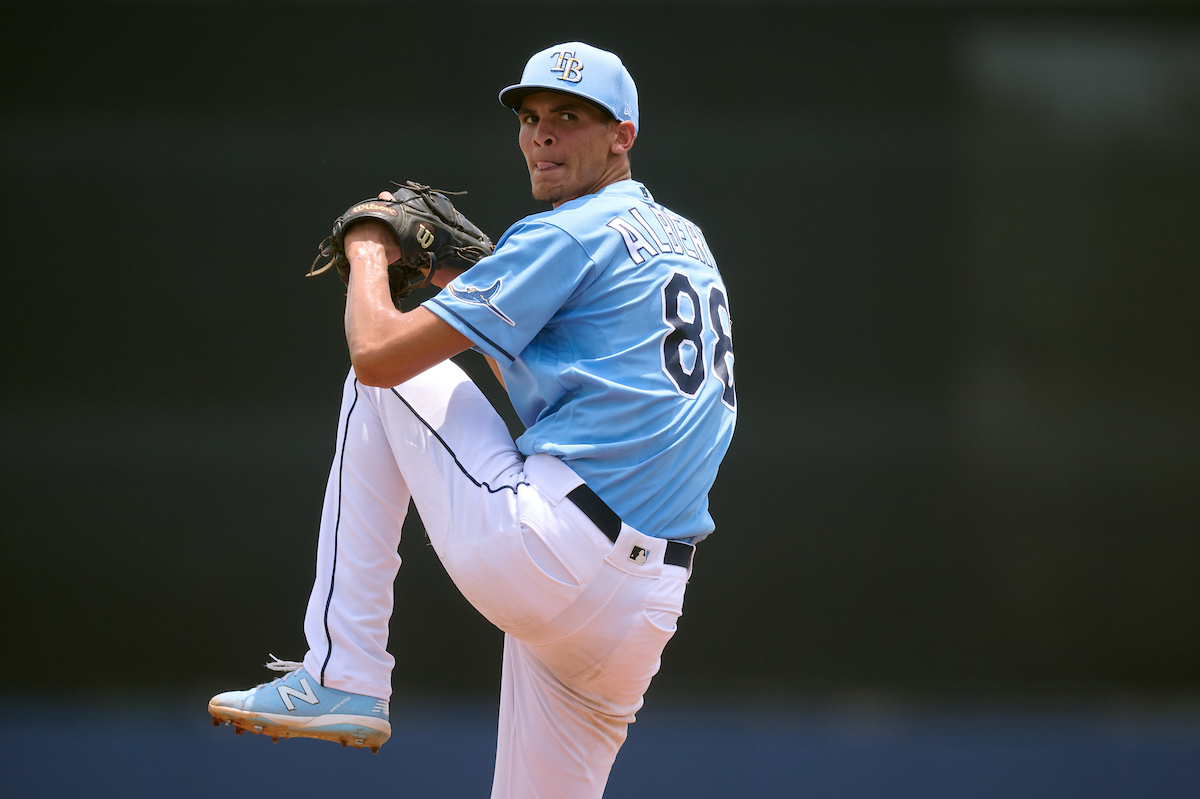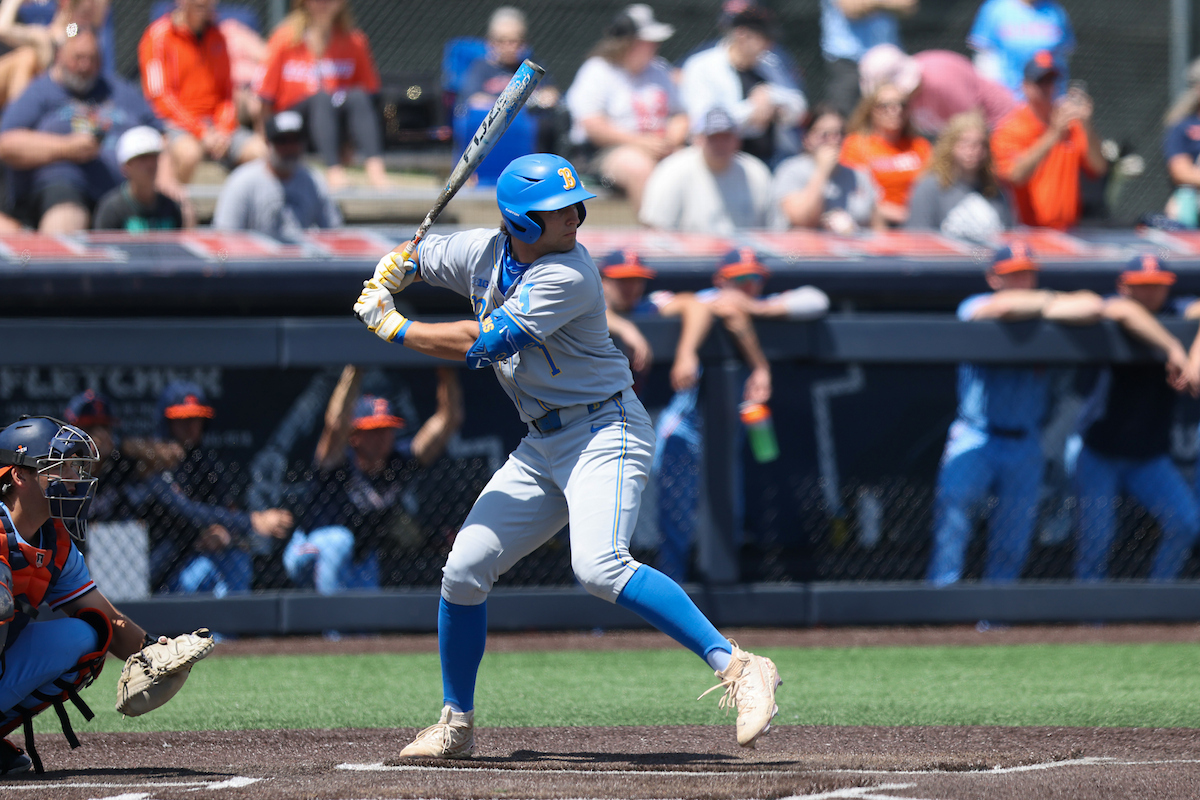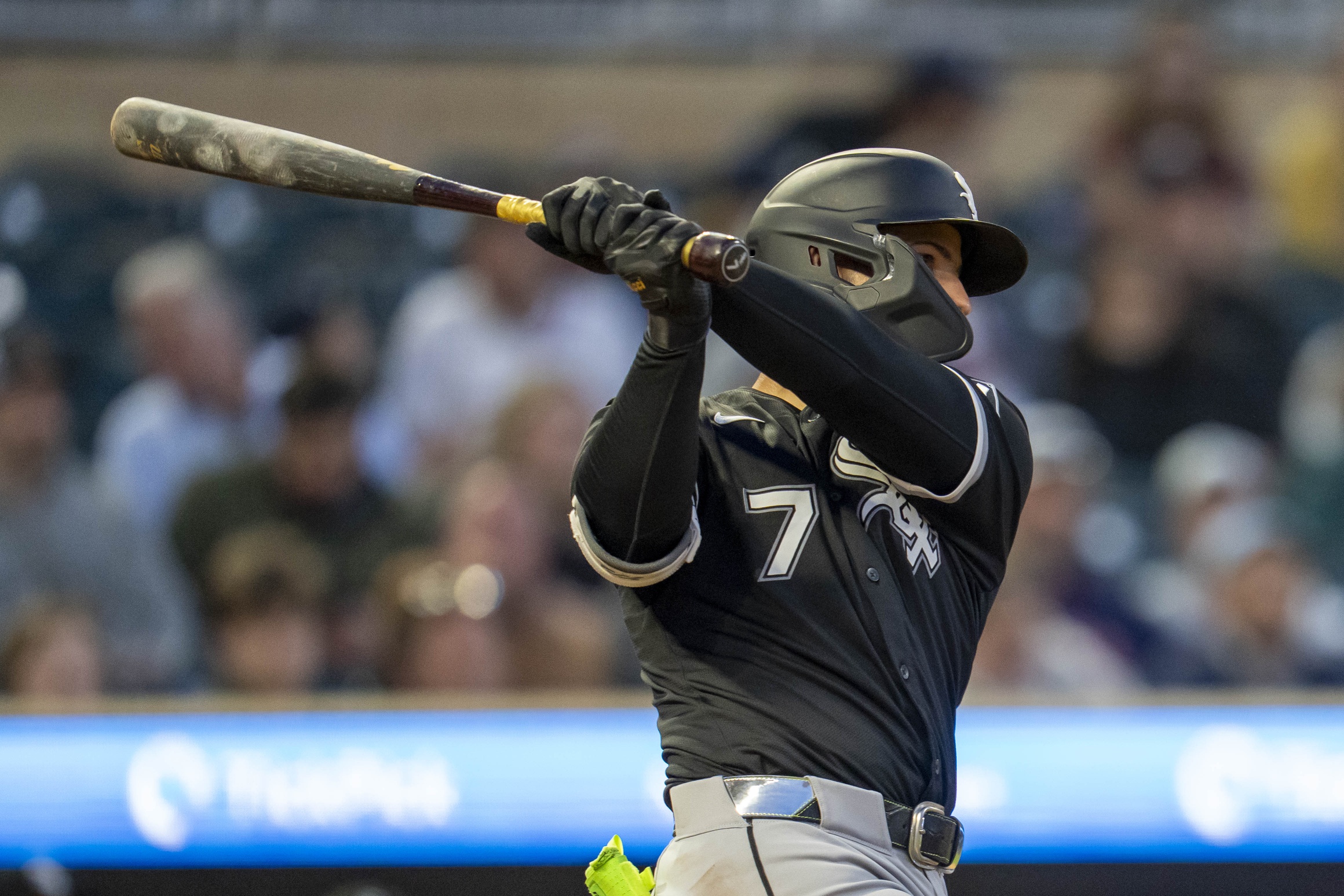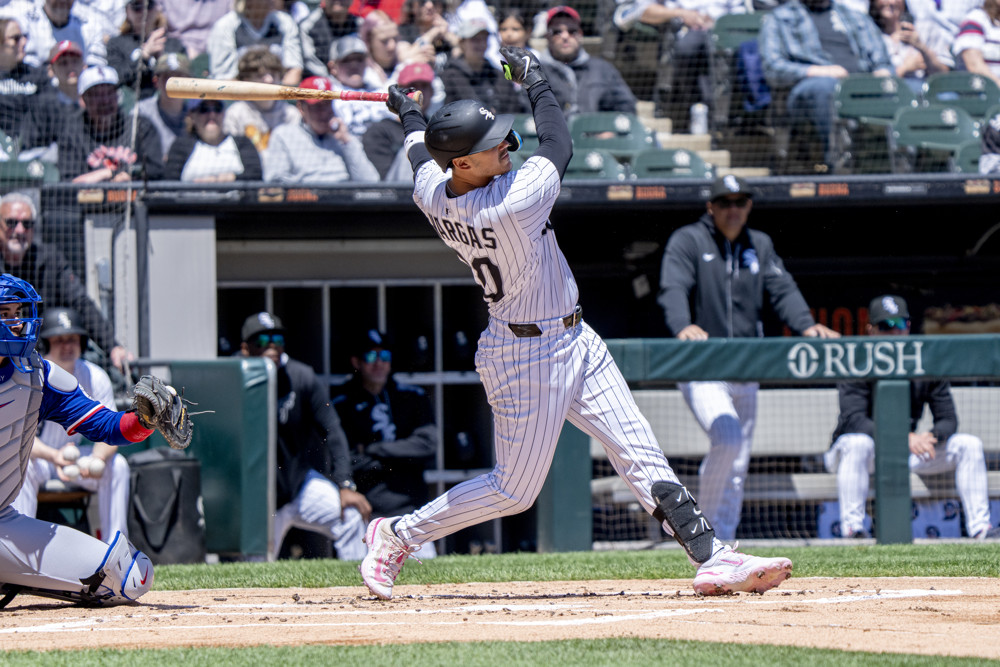To complete the grading process, which started with the previously-published position-player review, here are assessments of the 2020 White Sox pitchers. To reiterate some context from that post, these grades are more art than science due to the subjective nature of how much expectations for a player should affect their grade. My goal is to balance actual player performance against their expectations and probable role (both short-term and long-term) entering the season. While I may mention postseason performance in a player review, the grades primarily reflect regular season performance.
Per usual, I consider an average grade to be someplace on the C/C+ borderline. An 'A' is the highest grade and an 'F' is the lowest grade.
Again, the shortened season makes setting a minimum for playing time tricky. Last season, I used 25 IP. A straight proration would have Aaron Bummer slightly making the cut, and I don't see much point in grading his nine innings, so everyone from Bummer on down is being excluded from this.
In ascending order of innings pitched....
Jace Fry (RP): 18 G, 19.2 IP, 28.9% K, 14.5% BB, 3 HR, 3.66 ERA, 4.56 FIP, 0.1 bWAR, 0.0 fWAR
Fry was good against same-handed batters (.231/.286/.346), though not as dominant as he has been in his career overall (.184/.302/.257). Righties haven't exactly killed him (.788 OPS-against career, .786 OPS-against in 2020), which means the three-batter minimum rule didn't reduce Fry's usefulness as much as that of some lefty specialists. He had a dominant stretch in mid-August, but was pretty walk-happy from August 30 on, and that likely played a factor in being the only pitcher on the postseason roster that didn't enter a game. There's a lot of "meh" here. Grade: C-
Ross Detwiler (RP): 16 G, 19.2 IP, 18.5% K, 6.2% BB, 2 HR, 3.20 ERA, 3.90 FIP, 0.1 bWAR, 0.2 fWAR
Hindsight's 20/20, but one wonders whether the pivotal Game 3 loss against Oakland might have gone differently had the Sox opted to keep Detwiler in tow rather than the rusty Carlos Rodon. Instead, Detwiler was DFA'd shortly before the playoffs and I'm not sure he did anything to deserve it. He didn't allow a run until Aug. 29 and didn't walk a batter until Sept. 2, but Rick Renteria twice allowed him to twiddle his thumbs for a week at a time, even with Aaron Bummer on the shelf. His last outing -- a bad one on Sept. 20 -- did a lot to sully his season line. Hot stretch in a small sample or not, Detwiler deserved better. Grade: B-
Steve Cishek (RP): 22 G, 20.0 IP, 22.6% K, 9.7% BB, 4 HR, 5.40 ERA, 5.64 FIP, -0.2 bWAR, -0.2 fWAR
Cishek spent years beating his peripherals and in 2020, some combination of regression and worse pitching doomed him. Cishek's sinker was horribly diminished this season (.964 SLG against!); it lost velocity and floated more on him. He tried to compensate by shifting to throw 51 percent sliders, but you can't survive on just one breaking pitch and a show-me fastball. Cishek's greatest utility had been suppressing right-handed batters, and in 2020, they tattooed him for a .319/.396/.617 line. The White Sox DFA'd him, and Cishek left them no other choice. Grade: F
PERTINENT: Steve Cishek never resembled Steve Cishek with White Sox
Alex Colomé (RP): 21 G, 22.1 IP, 17.8% K, 8.9% BB, 0 HR, 0.81 ERA, 2.97 FIP, 1.0 bWAR, 0.6 fWAR
Colomé was just as effective at saving games as he was in 2019, going 12-for-13 and picking up the win the only time he lost the lead. This time, however, no one could question whether the quality of his pitching was commensurate with his results. Colomé's strikeout rate actually decreased from 2019 to 2020 while his walk rate held serve, but the endless parade of dribblers and weak flyouts made the effort convincing anyway. The loud contact from 2019 that made many question whether a collapse was forthcoming essentially disappeared, and he lowered his xwOBA from .339 (kinda bad) to .262 (excellent). I'd bet against him repeating the .200 BABIP from this year or the .215 BABIP from last year, but at least in 2020, his good results felt earned. Grade: A
Evan Marshall (RP): 23 G, 22.2 IP, 32.3% K, 7.5% BB, 1 HR, 2.38 ERA, 2.04 FIP, 0.6 bWAR, 0.9 fWAR
Marshall is another guy who fought regression by making significant season-over-season improvements. His changeup gets a lot of the fanfare, but Marshall nearly doubled his slider frequency in 2020 and it's hard to argue with the results. The righty's strikeout rate skyrocketed when reducing his fastball usage to just 29 percent, which went well with the steady diet of ground balls he generates. On the flip side, Marshall was second on the team to Jimmy Cordero with five meltdowns, and his Win Probability Added was just fourth in the bullpen and practically the same as that of Garrett Crochet, who only threw six innings. Poor failure timing aside, this was a very successful season for Marshall. The Sox control him for another two years, and three months ago no one would have cared about that. Grade: A-
Codi Heuer (RP): 21 G, 23.2 IP, 27.2% K, 9.8% BB, 1 HR, 1.52 ERA, 2.77 FIP, 0.8 bWAR, 0.5 fWAR
Heuer came from off the grid to quickly establish himself as Rick Renteria's go-to righty setup man down the stretch. Hitters had no chance against his slider, as they whiffed against 31 percent of them and only slugged .050 (!!!) against the pitch. The two-run blast Sean Murphy hit in the decisive Game 3 against the Athletics led to the first runs that Heuer had allowed in over a month. That blemish aside, his future looks bright and he'll likely wind up an integral part of the 2021 bullpen. Grade: A
Reynaldo López (SP): 8 G, 26.1 IP, 19.8% K, 12.4% BB, 9 HR, 6.49 ERA, 7.63 FIP, -0.6 bWAR, -0.5 fWAR
López missed a month of the season with shoulder soreness, but he still found time to allow nine home runs. His fourseam spin rate has always been dismal, but this year, his velocity dipped into the 94-95 range. After four seasons of frustration (including one where good fortune gave him a low ERA), the Sox got to the point where they couldn't justify putting López on a 28-man postseason roster. The likelihood the Sox will pursue starting pitching in free agency plus the availability of more interesting internal candidates will likely lead to López getting squeezed out of the organization's plans. Grade: F
Jimmy Cordero (RP): 30 G, 26.2 IP, 17.7% K, 7.3% BB, 2 HR, 6.08 ERA, 3.87 FIP, -0.9 bWAR, 0.2 fWAR
I'll forgive you if you look at that innings pitched total and go, "That's it?" Fans experienced some level of fatigue with Cordero this season (and hey, he did appear in half the games), but those looking at only his ERA are doing Jimmy a disservice. The ERA disregards Cordero's success with stranding baserunners; only one out of 16 scored on his watch this year. As a result, Renteria relied on him a lot. One inclined to spin narratives might say that Jimmy was so exhausted from successfully cleaning up other people's messes that he had no energy left to put out his self-created fires. He was also one of the few White Sox relievers that helped the cause in the postseason. By no means was it good year for Cordero, but he didn't deserve a lot of the tomatoes hurled his way. Grade: C-
Matt Foster (RP): 23 G, 28.2 IP, 28.4% K, 8.3% BB, 2 HR, 2.20 ERA, 2.88 FIP, 0.7 bWAR, 0.6 fWAR
Foster wilted in the biggest moment of the season, coming on in relief of an extremely ineffective Carlos Rodon with two outs and the bases loaded. His inability to find the strike zone (which I'll chalk up to nerves, as Foster had no history of being wild) led to walking in two runs and lowering the White Sox's win probability from 51 percent to 28 percent before Khris Davis bailed him out by swinging the bat for some reason. It was a very disappointing moment in a string of them during that game.
That said, one of the main reasons it was disappointing was because Foster spent all season conditioning us to expect better. His fastball/changeup combination was lethal all season long, and like Heuer, he came from the fringe of the roster to become one of the bullpen's most reliable arms. Foster is essentially found money, and while the White Sox could use work at striking gold someplace besides the bullpen, that doesn't make pleasant surprises like this any less welcome. Grade: A-
Gio González (SP/RP): 12 G, 31.2 IP, 22.2% K, 12.4% BB, 6 HR, 4.83 ERA, 5.50 FIP, -0.3 bWAR, -0.1 fWAR
Ultimately, González's body failed him. It was a very good idea for the White Sox to bring in Gio, but a groin strain and shoulder soreness limited his availability and he didn't have the same level of effectiveness as in years past. He could still make hitters swing and miss at an offspeed pitch, but the fastball was vulnerable all season long. Gonzalez's propensity to pitch from behind in the count caught up to him this season, and it's likely the Sox will take a pass on his services for next year. Grade: D-
Dane Dunning (SP): 7 G, 34.0 IP, 24.6% K, 9.2% BB, 4 HR, 3.97 ERA, 3.99 FIP, 0.1 bWAR, 0.7 fWAR
After a seven-inning, one-earned-run, seven-strikeout performance against the Twins on Sept. 15, confidence was soaring that Dunning could take the ball in Game 3 of a postseason series. He ultimately did, but was only allowed to record two outs, and the two starts leading up to the postseason were the primary reason why. Dunning was hit hard by Cleveland and was uncharacteristically wild against the Cubs down the stretch, which lost him the right to try to pitch out of trouble in an elimination game. Despite the late stumbles, this season was a successful debut for Dunning, and health willing, he looks the part of a mid-rotation starter moving forward. Grade: B+
Dylan Cease (SP): 12 G, 58.1 IP, 17.3% K, 13.3% BB, 12 HR, 4.01 ERA, 6.36 FIP, 0.1 bWAR, -0.4 fWAR
What a disaster. Cease's command was a mess from start-to-finish, and while the stuff can be eye-popping at times, his issues with gyroscopic spin raise questions as to how it would play even if he had a clue where the ball was going. Cease made all 12 of his scheduled starts this season but didn't manage to pitch enough innings to qualify for the ERA title. That FIP mark was the worst of any pitcher to throw at least 58 innings, with a mile between Cease and Matthew Boyd's Tim-Anderson-induced 5.78 mark. Had Cease been a more established pitcher, I might have placed more weight on the 4.01 ERA, which stemmed from his ability to get hitters to magically slap into double-plays (he's not a ground ball pitcher) to get him out of trouble, and the fluky .193 batting average he allowed with men on base. Instead, he's being primarily evaluated with his progress towards a long-term role. Right now, he looks a lot more like the guy the Sox were (rightfully) afraid to use in any meaningful postseason situation than a 4.00 ERA pitcher. Grade: F
Dallas Keuchel (SP): 11 G, 63.1 IP, 16.3% K, 6.6% BB, 2 HR, 1.99 ERA, 3.08 FIP, 2.0 bWAR, 1.8 fWAR
Like multiple other pitchers on this list, Keuchel was extremely successful all season long and saved his worst performance for the Oakland A's. He avoided dangerous contact and yielded the fewest home runs per innings pitched in all of baseball. Keuchel's success has never been predicated on a high strikeout total, but this year's 16.3 percent mark is the lowest he's posted since his awful debut season in 2012, owing possibly to him losing yet another tick on his fastball (the sinker averaged 87.4 mph). It will be interesting to see whether he'll be able to find continued Buehrle-like effectiveness with further-reduced stuff, but it would have been hard to expect better than what he did this year. Grade: A
Lucas Giolito (SP): 12 G, 72.1 IP, 33.7% K, 9.7% BB, 8 HR, 3.48 ERA, 3.19 FIP, 0.8 bWAR, 2.0 fWAR
The staff ace allowed seven runs to the Twins in the season opener, but that was not the ominous sign it looked to be. Across two starts in August, Giolito fanned a whopping 26 batters over 16 scoreless innings, including his first no-hitter. Questions of whether he's a "true" ace quickly evaporated when he threw seven scoreless innings (the first six of them perfect) against the A's in Game 1 of the wild card series. Giolito has established himself as one of the American League's best pitchers, and there are nothing but great things to say about his outlook from here. Grade: A
PERTINENT: Lucas Giolito's no-hitter a reward for those who kept watching
The Class Rank:
- Dallas Keuchel, A
- Lucas Giolito, A
- Alex Colome, A
- Codi Heuer, A
- Matt Foster, A-
- Evan Marshall, A-
- Dane Dunning, B+
- Ross Detwiler, B-
- Jimmy Cordero, C-
- Jace Fry, C-
- Gio Gonzalez, D-
- Steve Cishek, F
- Dylan Cease, F
- Reynaldo Lopez, F
